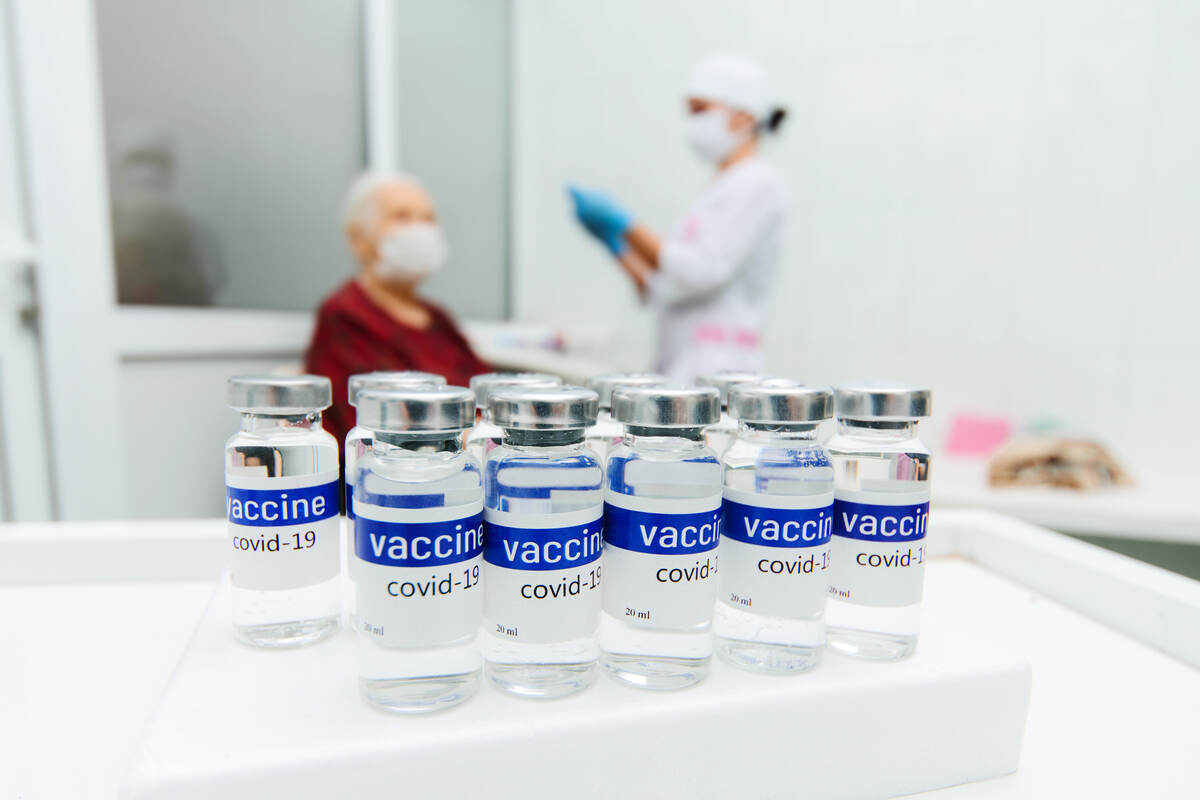Understanding the Vaccination Policy in Ontario: Who Is Eligible to Take Vaccines?
March 16, 2023
It’s been three years since the outbreak of COVID-19, and while it may seem like the pandemic is long forgotten by now, protecting yourself is still just as important. The number one way to stay safe and keep your loved ones safe is by getting one of the available COVID-19 vaccines. Luckily, the vaccination policy in Ontario works in your favor and allows you to get immunization against the disease. But are you eligible for the vaccine?
As with most treatments, the answer can depend on your personal medical condition and other eligibility criteria. So, in this article, we’ll tell you the main factors that determine whether you can get vaccinated as well as help you book your appointment and keep yourself safe from coronavirus.
Overview of the COVID-19 Vaccine Policy Ontario
The aim of the vaccination policy in Ontario is to ensure that all eligible residents receive the COVID-19 vaccine as soon as possible. The province has developed a phased approach to vaccination, prioritizing individuals at the highest risk of severe illness or exposure to the virus.
- The first phase of the vaccination rollout focused on residents and staff of long-term care homes, high-risk retirement homes, First Nations elder care homes, and high-risk healthcare workers.
- The second phase included individuals aged 80 and over, healthcare workers, and individuals in congregate living settings.
- The third phase includes individuals aged 75 and over, essential workers, and individuals with specific health conditions.
Because the goal is for the vaccine to be available for all residents, it is free of charge. Not only that, but it’s easy to get a hold of as it’s available through various channels, including vaccination clinics, pharmacies, and healthcare providers.
Eligibility Criteria for COVID-19 Vaccines in Ontario
Staying up-to-date with your COVID-19 vaccination is a responsible way to protect yourself from the virus and keep your close ones safe and help prevent large virus outbreaks within your community.
Regardless of your citizenship or immigration status, vaccination in Ontario is free. If you don’t have an Ontario health card, you can still get vaccinated against COVID-19. In that case, you need to provide use one of the following forms of identification:
- A passport
- A driver’s license or Ontario photo card
- A registered letter, a pay stub, a student ID, or a library card
- Other jurisdictions’ government-issued IDs (including foreign and expired government documents)
- People over 18 must bring photo ID.
According to the Ontario vaccination policy, the eligibility criteria include age and risk. The COVID-19 vaccines are available for all people from the age of six months and older.
-
- 6 months to 4 years: Eligible only for the primary series; no booster doses approved.
- 5 years and older: Eligible for the primary series and booster doses. The amount of time since your last dose, the time since the onset of symptoms, or the results of a positive COVID-19 test determine your eligibility and availability for booster doses.
- Immunocompromised individuals over the age of 6 months: It’s advised to get three doses of the vaccine as the primary series or four doses for children between 6 months and 4 years, depending on the vaccine.
Should You Consult a Doctor Before Vaccination?
In certain cases, speaking to your medical provider before getting vaccinated is strongly recommended. The reason for this is that you need to find out if vaccination is advisable for you and how many doses you are recommended to take.
According to the Canadian Immunization Guide, these are the two scenarios when consulting a doctor beforehand is vital
- If you’re immunocompromised because of a disease or treatment. Consult your doctor about the right timing for immunization against COVID-19.
- If you’ve experienced a severe allergic reaction to a previous dose of the COVID-19 vaccine.
- If you’re allergic to one of the components in the vaccine.
Who Are Immunocompromised Individuals?
We mentioned the eligibility status for immunocompromised individuals, but what does that mean?
Immunocompromised people have a weakened immune system, meaning their bodies may have difficulty fighting off infections and diseases. This can be caused by a variety of factors, including certain medical conditions such as HIV/AIDS or cancer, certain medications such as chemotherapy or immunosuppressants, or a genetic condition that affects the immune system.
Immunocompromised individuals might be more susceptible to infections and have a more challenging time recovering from infections. As a result, they might require special medical care and precautions to protect their health.
When to Get a Booster Dose?

Because evidence has shown that the protection wears off over time, the vaccination policy Ontario highly recommends booster doses for everyone above the age of 5. If you aren’t in a high-risk category, you can get your booster dose 6 months after your last vaccination. However, people from high-risk groups should get booster doses at 3-month intervals.
These are some of the groups that are considered high-risk:
- People over the age of 65
- 12 years of age and older occupants of communal settings (long-term care facilities, retirement homes, Elder Care Lodges, etc.)
- People over the age of 12 with an underlying health condition that puts them at risk of severe COVID-19 illness
- People over the age of 12 with immunocompromising conditions and who have consulted a healthcare provider
- Healthcare workers
- Pregnant individuals
How to Book a COVID-19 Vaccination Appointment in Ontario
Ontario residents can book a vaccine appointment through the online booking system or by calling the Provincial Vaccine Contact Centre (1-833-943-3900). After entering your personal information, you will get additional information about scheduling the appointment. You can even book a vaccination for somebody else, so you can help out a family member or a friend.
Most pharmacies that are part of the immunization program can provide you with the primary series or your booster dose. A lot of pharmacies require you to book an appointment in advance, but certain ones allow walk-ins. So, be sure to check the options offered by your selected pharmacy. At Everest Pharmacy, you can book your appointment by filling out a simple online form!
COVID-19 Vaccine Side Effects
One of the most asked questions about COVID-19 vaccines is whether you will experience any side effects after immunization. The answer is probably.
The most common side effects of COVID-19 vaccines are generally mild and go away within a few days. These side effects indicate that your body is building protection against the virus, so don’t worry. The common side effects may include:
- Pain or swelling at the injection site
- Fatigue
- Headache
- Muscle pain
- Chills
- Fever
- Nausea
Of course, not everyone will experience these side effects, and some people may experience different or no side effects at all.
In very rare cases, serious side effects can occur. If you experience any concerning or persistent side effects after receiving a COVID-19 vaccine, contact your healthcare provider for advice.
FAQ About COVID-19 Vaccines
-
- Is the COVID-19 vaccine mandatory in Ontario? No, the COVID-19 vaccine is not mandatory in Ontario. However, the government is strongly encouraging all eligible residents to get vaccinated.
- How many doses of the COVID-19 vaccine are required? Most COVID-19 vaccines require two doses to be fully effective. The specific dosing schedule varies by vaccine.
- Can I still contract COVID-19 after receiving a vaccine? While COVID-19 vaccines are highly effective, no vaccine is 100% effective. It is still possible to contract COVID-19 after receiving a vaccine, although the risk is significantly reduced.
- Do COVID-19 vaccines interfere with prescription drugs? With a vast majority of prescription medication, you can rest assured the vaccine won’t interfere with it. So, in most cases, you can keep getting your prescription refills and get vaccinated against COVID. Of course, it’s always good to consult your medical provider about your specific case.
Book Your Vaccine Appointment Today
So, according to the vaccination policy Ontario, most people are eligible for the vaccination and are strongly advised to get immunized. Now it’s up to you to consider all the information and consult your doctor if necessary.
If you want to get immunization against COVID-19, Everest Pharmacy is at your service. We are a whole health pharmacy in Toronto with highly skilled personnel. From medical reviews to COVID-19 vaccines, we have got you covered. Our pharmacists are here to help with all your healthcare and wellness needs, so get in touch!
Contact us today, book your appointment and keep yourself safe!






